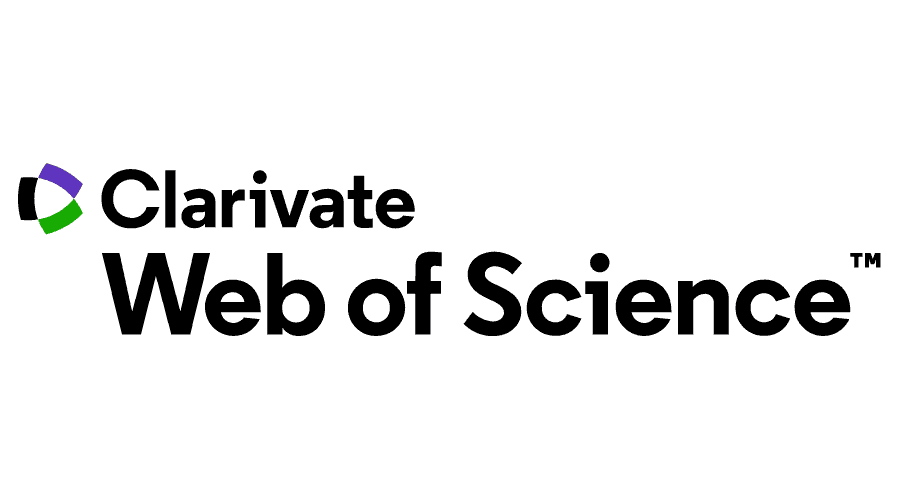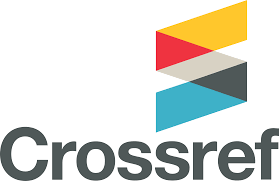Abstract
Research Aims: This research aims to determine how technology, integrity, and the environment affect traceability of halal product certification and its relationship with Halal Value Chain (HVSC) Management in micro, small and medium processing industries.
Design/Methodology/Approach: The quantitative research utilised survey data from 285 respondents who are processing industry players throughout Indonesia. Structural Equation Modelling-Partial Least Square (SEM-PLS) is applied for data analysis.
Research Findings: The study's findings indicate that technology adoption and environmental factors have a significant effect on HVSC traceability. The authentication and legitimacy of halal products are positively impacted by technology adoption, among others, which contributes to the overall product integrity. The research findings also indicate government support as an important factor.
Theoretical Contribution/Originality: This research is one of the first studies related to supply chain legitimacy and authentication in the context of micro, small, and medium businesses in Indonesia, a country with a Muslim majority and many micro-businesses where these businesses have direct contact with “from farm to fork or table” end customers.
Managerial Implication in the South East Asian Context: This research offers valuable contribution for managers and policymakers in South East Asia in formulating authentic halal product policies in terms of HVSC.
Research Limitations & Implications: This research can benefit from a larger sample size, preferably from larger companies, for generalisation. Moreover, expanding the research across borders and employing a mixed-method approach could offer further insights to overcome supply chain challenges in the future.
References
Ab Rashid, N., & Bojei, J. (2020). The relationship between halal traceability system adoption and environmental factors on halal food supply chain integrity in Malaysia. Journal of Islamic Marketing, 11(1), 117–142.
Ab Talib, M. S. (2017). Motivations and benefits of halal food safety certification. Journal of Islamic Marketing, 8(4), 605–624.
Abidin, N. Z., & Perdana, F. F. P. (2020). A proposed conceptual framework for blockchain technology in Halal food product verification. Journal of Halal Industry & Services, 3, 1–8.
Adekunle, B., & Filson, G. (2020). Understanding halal food market: Resolving asymmetric information. Food Ethics, 5(1–2), 1–22.
Ag Majid, D. K. Z., Abdul Hanan, S., & Hassan, H. (2021). A mediator of consumers’ willingness to pay for halal logistics. British Food Journal, 123(3), 910–925.
Aghwan, Z. A., Bello, A. U., Abubakar, A. A., Imlan, J. C., & Sazili, A. Q. (2016). Efficient halal bleeding, animal handling, and welfare: A holistic approach for meat quality. Meat Science, 121, 420–428.
Ahi, P., & Searcy, C. (2013). A comparative literature analysis of definitions for green and sustainable supply chain management. Journal of Cleaner Production, 52, 329–341.
Ahmad Tarmizi, H., Kamarulzaman, N. H., Abd Rahman, A., & Atan, R. (2020). Adoption of internet of things among Malaysian halal agro-food smes and its challenges. Food Research, 4(1996), 256–265.
Akhtar, N., Jin, S., Alvi, T. H., & Siddiqi, U. I. (2020). Conflicting halal attributes at halal restaurants and consumers’ responses: The moderating role of religiosity. Journal of Hospitality and Tourism Management, 45(October), 499–510.
Ali, M. H., & Suleiman, N. (2018a). Eleven shades of food integrity: A halal supply chain perspective. Trends in Food Science and Technology, 71(December 2017), 216–224.
Ali, M. H., & Suleiman, N. (2018b). Eleven shades of food integrity: A halal supply chain perspective. Trends in Food Science and Technology, 71(November 2017), 216–224.
Ali, M. H., Tan, K. H., & Ismail, M. D. (2017). A supply chain integrity framework for halal food. British Food Journal, 119(1), 20–38.
Anir, N. A., Nizam, M. D. N. M. H., & Masliyana, A. (2008). The users perceptions and opportunities in Malaysia in introducing RFID system for Halal food tracking. WSEAS Transactions on Information Science and Applications, 5(5), 843–852.
Arif, S., & Sidek, S. (2015). Application of halalan tayyiban in the standard reference for determining Malaysian halal food. Asian Social Science, 11(17), 116–129.
Aung, M. M., & Chang, Y. S. (2014). Traceability in a food supply chain: Safety and quality perspectives. Food Control, 39(1), 172–184.
Azmi, F. R., Abdullah, A., Musa, H., & Wan Mahmood, W. H. (2020). Perception of food manufacturers towards adoption of halal food supply chain in Malaysia: Exploratory factor analysis. Journal of Islamic Marketing, 11(3), 571–589.
Bergeaud-Blackler, F., Fischer, J. and Lever, J. (2016). Halal Matters. London: Routledge.
Ben-Daya, M., Hassini, E., Bahroun, Z., & Banimfreg, B. H. (2020). The role of internet of things in food supply chain quality management: A review. Quality Management Journal, 28(1), 17–40.
Bouzembrak, Y., Klüche, M., Gavai, A., & Marvin, H. J. P. (2019). Internet of Things in food safety: Literature review and a bibliometric analysis. Trends in Food Science and Technology, 94, 54–64.
Danezis, G. P., Tsagkaris, A. S., Brusic, V., & Georgiou, C. A. (2016). Food authentication: state of the art and prospects. Current Opinion in Food Science, 10, 22–31.
Dimitrakopoulou, M. E., & Vantarakis, A. (2023). Does traceability lead to food authentication? A systematic review from a European perspective. Food Reviews International, 39(1), 537-559.
Duan, J., Zhang, C., Gong, Y., Brown, S., & Li, Z. (2020). A content‐analysis based literature review in blockchain adoption within food supply chain. International Journal of Environmental Research and Public Health, 17(5), 1784.
El Sheikha, A. F., Mokhtar, N. F. K., Amie, C., Lamasudin, D. U., Isa, N. M., & Mustafa, S. (2017). Authentication technologies using DNA-based approaches for meats and halal meats determination. Food Biotechnology, 31(4), 281–315.
Galanakis, C. M. (2020). Food authentication and traceability. Food Authentication and Traceability, 1–396.
Gupta, M., & Gupta, S. (2019). Influence of national cultures on operations management and supply chain management practices—A research agenda. Production and Operations Management, 28(11), 2681–2698.
Hair, J. F., Black, W. C., Babin, B. J., & Anderson, R. E. (2010), Multivariate Data Analysis: A Global Perspective. Englewood Cliffs, NJ: Pearson Education.
Halaseh, L. Al, & Sundarakani, B. (2012). Study on quality attributes of halal food supply chain. International Journal of Logistics Economics and Globalisation, 4(1/2), 20.
Hasan, Z. (2021). Making Indonesia as integrated halal zone and world halal sector hub through the implementation of halal supply chain. Journal of Islamic Economic and Business Research, 1(1), 1–14.
Hashim, H. I. C., & Shariff, S. M. M. (2016). Halal Supply chain management training: Issues and challenges. Procedia Economics and Finance, 37(16), 33–38.
Hasnah Hassan, S. (2011). Consumption of functional food model for Malay Muslims in Malaysia. Journal of Islamic Marketing, 2(2), 104–124.
Hewege, C., & Perera, C. (2020). The impact of religio-cultural institutional hegemony on sri lankan (halal) supply chains: Theorising the Interplay between the certification body, social institutions and the government. Journal of Muslim Minority Affairs, 40(3), 351–370.
IHLC, Dinar Standard, & Bank Indonesia. (2021). Indonesia Halal Markets Report 2021/2022. 1–118.
Indarti, N., Lukito-Budi, A. S., & Islam, A. M. (2020). A systematic review of halal supply chain research: to where shall we go? Journal of Islamic Marketing, 12(9), 1930–1949.
Jogiyanto, H, M. (2013). Metodologi Penelitian Bisnis: Salah Kaprah dan Pengalaman- Pengalaman. Yogyakarta: BPFEBUGM.
Jogiyanto, H, M. (2012). Pedoman Survei Kuesioner Edisi Ke 2. Yogyakarta: BPFEBUGM.
Khan, M. I., Haleem, A., & Khan, S. (2018). Defining halal supply chain management. Supply Chain Forum, 19(2), 122–131.
Khan, M. I., Haleem, A., & Khan, S. (2022). Examining the link between halal supply chain management and sustainability. International Journal of Productivity and Performance Management, 71(7), 2793–2819.
Khan, S., Haleem, A., & Khan, M. I. (2021). Risk management in halal supply chain: an integrated fuzzy Delphi and DEMATEL approach. Journal of Modelling in Management, 16(1), 172–214.
Letourneau, K. B., & Whelan, S. T. (2017). Blockchain: Staying ahead of tomorrow. The Journal of Equipment Lease Financing (Online), 35(2), 1-6.
Maman, U., Mahbubi, A., & Jie, F. (2018). Halal risk mitigation in the Australian–Indonesian red meat supply chain. Journal of Islamic Marketing, 9(1), 60-79.
Manning, L., & Soon, J. M. (2016). Food safety, food fraud, and food defense: A fast evolving literature. Journal of Food Science, 81(4), R823–R834.
Manzouri, M., Nizam Ab Rahman, M., Saibani, N., & Rosmawati Che Mohd Zain, C. (2013). Lean supply chain practices in the halal food. International Journal of Lean Six Sigma, 4(4), 389–408.
Mohamed, Y. H., Abdul Rahim, A. R., & Ma’aram, A. (2020). The effect of halal supply chain management on halal integrity assurance for the food industry in Malaysia. Journal of Islamic Marketing, 12(9), 1734–1750.
Mohamed, Z., Shamsudin, M. N., & Rezai, G. (2013). The effect of possessing information about halal logo on consumer confidence in Malaysia. Journal of International Food and Agribusiness Marketing, 25(SUPPL1), 73–86.
Muhamed, A. A., Mat Halif, M., Abu Bakar, M. Z., Hassan, M. F., & Abd Rahim, N. N. (2022). Non-Conventional strategic supply chain management towards halal perspective. International Journal of Academic Research in Business and Social Sciences, 12(1), 1454-1477.
Mukhtar, A., & Butt, M. M. (2012). Intention to choose halal products: The role of religiosity. Journal of Islamic Marketing, 3(2), 108–120.
Nunnally, J. and Bernstein, I. (1967). Psychometric Theory. New York: McGraw-Hill.
Pew Research Center. (2011). The future of the global Muslim population. Projections for 2010-2030. Population Space and Place, 13(1), 1–221.
Rahman, A. A., Hanafiah, M. H., Abdul, M., & Ruslee, A. A. (2016). Assessing consumers' willingness to use tagging technology in tracing halal status. International Journal of Islamic Marketing and Branding, 1(3), 272-284.
Rashid, N. A., Supian, K., & Bojei, J. (2018). Relationship between halal traceability system adoptions on halal food supply chain integrity and performance. International Journal of Asian Social Science, 8(8), 569–579.
Rejeb, A., Rejeb, K., Zailani, S., Treiblmaier, H., & Hand, K. J. (2021). Integrating the Internet of Things in the halal food supply chain: A systematic literature review and research agenda. Internet of Things (Netherlands), 13(2021), 100361.
Riaz, M. N., & Chaudry, M, M. (2019). Hand Book Of Halal Food Production. Milton Park, Abingdon: Taylor & Francis.
Samsi, S. Z. M., Tasnim, R., & Ibrahim, O. (2011). Stakeholders’ role for an efficient traceability system in halal industry supply chain. In Annual International Conference on Enterprise Resource Planning and Supply Chain Management (ERP-SCM 2011), 14-15.
Soon, J. M., Chandia, M., & Regenstein, J. Mac. (2017). Halal integrity in the food supply chain. British Food Journal, 119(1), 39–51.
Syazwan, M., Talib, A., Hamid, A., Bakar, A., & Too, A. C. (2019). Contemporary management and science issues in the halal industry. In Contemporary Management and Science Issues in the Halal Industry. Gateway East: Springer Singapore.
Talib, M. S. A. (2015). Motivations and benefits of halal food safety certification. Journal of Islamic Marketing, 8(4), 605–624.
Tan, A., Gligor, D., & Ngah, A. (2022). Applying blockchain for halal food traceability. International Journal of Logistics Research and Applications, 25(6), 947–964.
Tieman, M., & Darun, M. R. (2017). Leveraging blockchain technology for halal supply chains. ICR Journal, 8(4), 547–550.
Tieman, M., van der Vorst, J. G. A. J., & Ghazali, M. C. (2012). Principles in halal supply chain management. Journal of Islamic Marketing, 3(3), 217–243.
Wang, C. S., Van Fleet, D. D., & Mishra, A. K. (2017). Food integrity: a market-based solution. British Food Journal, 119(1), 7–19.
Yanti, R., Febrianti, M. A., Qurtubi, & Sulistio, J. (2022). Halal blockchain: Bibliometric analysis for mapping research. Asian Journal of Islamic Management (AJIM), 4(1), 72–85.
Zainuddin, N., Saifudin, A. M., Deraman, N., & Mahidin, N. (2019). Effect of halal certification and labelling process on halal supply chain performance. International Journal of Supply Chain Management, 8(4), 1075–1081.
Zulfakar, M. H., Anuar, M. M., & Ab Talib, M. S. (2014). Conceptual framework on halal food supply chain integrity enhancement. Procedia-Social and Behavioral Sciences, 121, 58-67.
Recommended Citation
Nugroho, Ari Agung; Sumiyati, Sumiyati; and Hamsani, Hamsani
(2024)
"Integrity and Legitimacy of Halal Products: The Urgency of Halal Supply Chain Management Technology Adoption in Halal Product Authentication Traceability Evidence from Indonesia,"
The South East Asian Journal of Management: Vol. 18:
No.
1, Article 3.
DOI: 10.21002/seam.v18i1.1485
Available at:
https://scholarhub.ui.ac.id/seam/vol18/iss1/3
Included in
Entrepreneurial and Small Business Operations Commons, Operations and Supply Chain Management Commons











